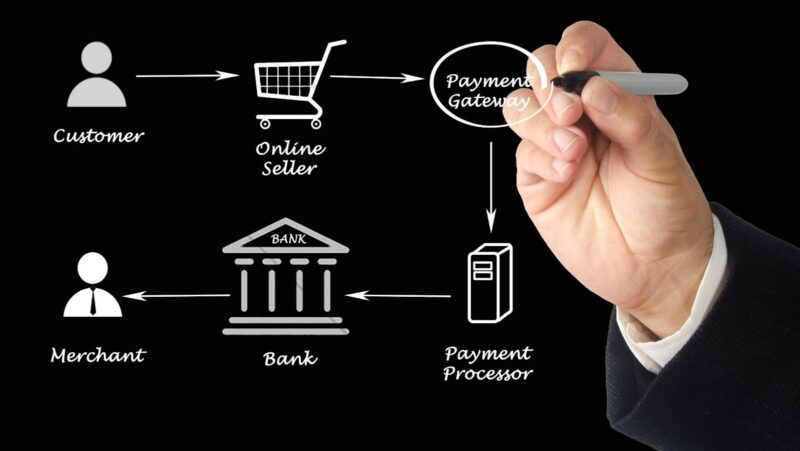
PayMongo is a leading tech company across the Philippine Islands that has received its first round of funding for a take-over. The funding will help the company expand its services across the nation, which in turn will have a major impact on the economy by creating jobs and increasing the country’s GDP.
This article will explore the potential implications of this move in detail.
PayMongo lands funding in Philippine take-over
PayMongo is a new fintech start-up revolutionising the payments industry in the Philippines with seamless, secure, and technologically advanced payment acceptance solutions. PayMongo is setting a new standard of commerce in the Philippines by simplifying payment acceptance and speeding up payments processing. Recently, PayMongo announced that it had secured financing from some of the world’s leading financial investors to help fuel its expansion into the Philippine market.
The significance of this investment cannot be understated — PayMongo’s foray into the sector could potentially have an enormous impact on the Philippine economy. The company’s mission is to simplify and streamline payments for their customers, helping them improve their customer experience and efficiency when making payments for products and services. Not only does this improve customer satisfaction levels, it has a direct knock-on effect on business growth and benefits businesses by reducing costs associated with payment processing fees.
Aside from enabling merchants to provide more customer-centric solutions, PayMongo also helps support small business owners by providing low transaction rates, helping them keep costs down while gaining access to new markets via digital transactions and mobile payments solutions. Furthermore, increased use of digital payments reduces security concerns when dealing with cash transactions. In addition, it provides regulatory authorities with better visibility over financial activities, which helps prevent tax evasion and money laundering and can lead to greater economic stability in the country overall.
Ultimately, PayMongo’s entry into the Philippine market will open up promising pathways for ecommerce merchants who can leverage its services to drive value for their businesses—a win-win situation for all involved stakeholders and a clear indication that fintech technology has arrived in Southeast Asia!

Overview of the Philippine economy
The economy of the Philippines is the world’s 33rd largest economy by nominal gross domestic product (GDP) according to the International Monetary Fund 2020 and the 13th largest economy in Asia. However, it contracted 0.7% in Q2 2020, after a 0.2% decline in Q1 2020, largely due to weak investments and consumption amid precautionary responses against the coronavirus pandemic. However, it managed to limit the losses via timely government spending and foreign spending aid coming into the country. As a result, its GDP for 2019 was valued at about $335 billion and had seen average growth of 5-6% between 2008-2019.
The Philippine financial industry saw steady, uninterrupted expansion from 2000-2020, characterised by slower GDP growth after 2008, but saw improved trends 2010 onwards with increased investments, productivity growth and access to capital. Regarding financial technology, long-established commercial banks were joined recently by digital banks and e-payment solutions such as PayMaya Philippines (formerly Smart eMoney Inc.) offering electronic disbursements such as payroll payment of employee salaries and merchant money transfers integrated with a mobile wallet app for customers.
The rapid adoption of cashless solutions by industries especially in light of this pandemic has been gaining traction as more companies have transitioned their transaction methods from cash & cheques towards scan-to-pay technologies such as QR codes and tap-to pay systems like NFC cards & tags associated with mobile banking accounts that can be accessed directly from mobiles phones/tablets. With this background in mind came PayMongo’s announcement of a series A investment round for its operations in the Philippines which puts it at an advantageous position to become a driver for accelerating shift towards digital payments in Philippine markets with real potentials for further economic benefits down line if successful.
Impact of PayMongo on the Philippine economy
PayMongo is the first Filipino payments startup to ever receive Series A funding. This funding round of $12 million allows PayMongo’s technology to now be accessible to over 106 million people living in the Philippines. This financial growth has a lasting impact on the Philippine economy, allowing merchants to easily accept digital payments and businesses to grow.
Let’s explore how exactly PayMongo has impacted the Philippine economy.
Increase in financial inclusion
The investment of PayMongo in the Philippines marks another milestone in the country’s financial market. This could substantially increase financial inclusion, as it offers an effective means of payment collection and money transfer services for SMEs, freelancers, and other stakeholders. In addition, this can help expand the access of rural residents, who may not have access to banking infrastructure or do not have credit cards.
It will also benefit businesses by cutting overhead costs through lower customer fees. Furthermore, by boosting product or order checkout, merchants can enjoy higher conversion rates and benefit from faster payments and collections.
By using PayMongo with its existing payment network structure in place such as GCash and CoinsPH, it is possible to gain additional information from customer behaviours – vital data that can be used to improve customer service. It also enables more convenient money transfers across entities while improving security measures such as digital verification methods like OTPs (one-time passwords).
PayMongo sets out to reduce payment processing time in addition to other related tasks such as refunds through its APIs and proprietary rules engine, which simultaneously speeds up time-to-market activities while reducing transaction costs. This demonstrates that something stable and secure has been created regarding cross-border remittances between Filipino migrants abroad and family back home – now accessible on the tap of a finger.
Improved access to digital payments
Introducing PayMongo into the Philippine financial landscape has helped improve access to digital payments. This has significantly transformed how people make payments and is part of a larger global push towards digital money. PayMongo is an online payment company that provides merchants with a trusted platform for accepting payments from any part of the world.
In addition to better access to digital payments, PayMongo offers practical solutions for businesses, allowing them to securely receive payment on time and with fewer headaches. Business owners can now opt for better solutions such as bank transfers, card payments and even paper checks when collecting customer payments. Furthermore, PayMongo helps merchants save time by creating individual receipts and invoices easily managed through its services.

Not only this, but PayMongo’s services have also helped drive down banking fees while increasing convenience in various transactions. With fee savings provided through direct deposits and reduced transaction processing fees, businesses can increase their profits while promptly providing customers with more choices when paying for goods or services. Moreover, using PayMongo also reduces manual processing errors while increasing customer reuse of connected payment accounts due to their secure environment.
As a result of these improved accesses and practical solutions offered by PayMongo, the Philippine economy has experienced an increase in GDP growth since the rise of this online payment platform in 2020; boosting investment optimism across domestic industries as well as international markets alike. All these factors suggest that PayMongos’ entrance into the Philippine market was beneficial for its economy as it enabled increased ease-of-use when it comes with making financial transactions through improved infrastructure from local stakeholders and methods from abroad like its third party integrated solutions from global solution providers.
Increased employment opportunities
PayMongo has created numerous employment opportunities in the Philippines, both directly and indirectly. Most notably, its workforce has grown significantly since 2017. This influx of new jobs has positively impacted the country’s economy, as more people can join the labor force and contribute to economic growth. Additionally, it has been estimated that over 200 businesses are utilising PayMongo as their primary source of payment processing for digital transactions.
This rise in employment opportunities also benefits Filipino entrepreneurs and small business owners who have previously struggled with limited access to capital and payment solutions. PayMongo’s easily accessible payment methods allow them to accept payments from all customers – abroad or the local market. Access to this type of service opens up a wealth of possibilities for start-ups and creatives who may never have had such an opportunity before.
Apart from creating new jobs, PayMongo also contributes financially to the Philippine economy through taxes and other fees related to its operations in the country. This increases total revenue earned by local governments which can then be used for public projects such as infrastructure improvements, education initiatives, and various public services that benefit Filipinos in need.
The arrival of PayMongo’s innovative solutions into the Philippine economy marks a major milestone for Filipino technology enthusiasts who can now access cutting-edge tools at relatively affordable prices. This will also open up more opportunities for small startups who may not have been able to enter established markets due financial restrictions before now being able to do so easily with Paymongo’s help . All these developments suggest that PayMongo could become a major game changer in how businesses across the Philippines operate in a digital world.
Challenges faced by PayMongo
PayMongo’s biggest challenge has been gaining traction in a market still largely dominated by traditional payment methods. In addition, the company has faced challenges such as finding a regulatory environment that would support their business model and educating consumers on the benefits of using digital payments.
In this article, we will explore some of the challenges PayMongo have faced in their mission to take over the Philippine payment industry.
Regulatory hurdles
Despite the promise and potential of digital payments in the Philippines, several regulatory hurdles prevent the industry from making a meaningful impact. For example, central Bank regulations are not yet conducive to encouraging fintech companies like PayMongo to take on a greater role in driving Filipino economic growth. Similarly, the regulatory environment is slow or unclear regarding how PayMongo should interact with existing traditional players, such as banks and other financial institutions, to thrive.
Another challenge faced by PayMongo is that major banks often have strict policies against collaborating with fintech companies due to their business practice limitations. Additionally, existing technology providers may feel threatened by the threats posed by new entrants like PayMongo who can offer different solutions and pricing depending on customer needs. This creates friction in negotiations and ultimately hinders progress towards creating an innovative digital payments landscape for Filipinos.
PayMongo is also challenged by unofficial regulations surrounding data privacy and security when it comes to both user data collected from customers as well as internal company information. Given the prominence that data plays when it comes to digital payments and a public environment with more emphasis being placed on cyber security and financial crime prevention, there are specific challenges now inherent with providing payment services via technology platforms such as PayMongo’s given concerns around data protection laws which often present challenges for international entities setting up operations in countries like the Philippines.
Lack of consumer trust

PayMongo is a state-of-the-art payment gateway solution, providing merchants with an easy, secure, and quick way to accept payments. However, given that PayMongo is a relatively new fintech, some Filipinos are wary of using the platform due to lack of consumer trust. Consumer trust must be won and maintained for Manila businesses to benefit from the current digital transformation trends in payment technologies.
This lack of consumer trust has been proven particularly true when using PayMongo in ecommerce transactions. These transactions typically involve exchanging sensitive information and money between multiple parties, making customers inherently hesitant when trying out new or unverified payment solutions such as PayMongo. To boost consumer confidence in its platform, PayMongo has worked hard on addressing various pain points such as expensive transaction fees associated with traditional currencies and providing customer support in different languages.
Another major issue faced by PayMongo is having to establish their legitimacy among local banks and financial institutions. Being certified by reliable regulatory bodies with experience in dealing with the complexities associated with local laws helps give consumers additional peace of mind when processing payments. Regulatory partnerships are important considerations that financial technology firms need to consider even before they launch their services in a foreign market like the Philippines.
PayMongo also faces stricter scrutiny while operating overseas due to compliance issues surrounding privacy regulations like GDPR (General Data Protection Regulation). They also need to ensure that their products comply not just with local regulations but also international ones. Sanctions imposed due to violation could lead to costly penalties that could derail PayMongo’s expansion plans into the country.
Competition from other payment services
PayMongo is a Philippine-based fintech company that offers various contactless payment services to customers. Since its launch in late 2019, PayMongo has seen tremendous growth in the market. However, despite the high demand for its services, the company faces strong competition from other payment services such as GrabPay, CoinsPH and GCash.
The presence of these competitors not only reduces market share for PayMongo and increases customer acquisition costs due to higher advertising expenses. Furthermore, these rivals have different strategies and products that may be more attractive to some customers. For example, CoinsPH offers instant cashouts and discounts on merchant payments while GrabPay has an integrated loyalty program encouraging increased product usage.
To stay ahead of the competition, PayMongo has aggressively rolled out new products such as mutual funds and rewards programs to draw customers away from rival payment service providers. This tactic could effectively reduce competitive pressure, but PayMongo must ensure that it remains competitively priced or it could risk losing more market share to other providers.
Benefits of PayMongo for the Philippine economy
PayMongo, the leading digital payments platform in the Philippines, has secured funding in a Philippine take-over that promises to revolutionise the country’s economic landscape.
Through its secure, easy to use payment solutions, PayMongo has already proven to be a valuable asset for Philippine businesses and consumers.
Let’s take a closer look at the benefits that PayMongo has brought to the Philippine economy.
Increased foreign investments
PayMongo, a payments startup that has secured investments from the likes of A-list investors such as Y Combinator and Sequoia Capital, is playing a major role in helping Philippine businesses learn how to digitally accept payments.
This company’s strategic funding injection into the local economy is open to global investments, allowing greater access to international markets and the pool of capital available.
As businesses become more comfortable using PayMongo’s platform to securely process essential payments, they can also gain access to more investors willing to support their ventures. For example, PayMongo’s recent $300+ million investment signals a major moment for the Philippine economy —one in which foreign investors feel more secure about investing their capital in local companies.
Furthermore, this landmark investment is a testament to investors’ openness in exploring new opportunities due to the security mechanisms and services offered by PayMongo. As such, local businesses with access to larger pools of investment capital can continue scaling their operations and even explore expansion opportunities created by new investments. This ultimately leads to job creation within the Filipino community and increased economic growth due to increased foreign investments into our country’s technology startup sector.
Improved access to global markets
PayMongo’s recent funding win has emphasised the importance of access to global markets for the Philippine economy. As a result, small businesses and freelancers can now hit a larger market than ever through their services. In addition, they can now accept payments from anywhere worldwide, reducing transaction costs and providing seamless payment experiences.
PayMongo’s ability to open global markets for Philippine businesses significantly impacts the economy as it can create more employment opportunities through increased exports. This provides low-income households access to higher wages and a better quality of life.
The country also benefits from improved capital flows due to removing economic borders, increasing overall trade with access to world markets, and streamlining banking processes by making it easier for individuals and organisations. With these new market opportunities, businesses will be able to increase their sales, bringing more foreign currency into the country, boosting economic growth and development.
PayMongo’s potential take-over of the Philippine market gives small businesses access to some of the most competitive payment services available in terms of conversion rates and transaction fees which further lowers their cost of doing business while at the same time enabling them greater access to efficient financial systems such as automated payouts. Moreover, combined with its partnership program, they can ensure that new merchants have all the resources necessary to obtain global markets quickly and efficiently without incurring additional costs.
PayMongo’s ability to open up gains for entrepreneurs also increases investor confidence, leading to increased funding for innovative ideas and investments within the region and even greater economic gains for all stakeholders involved.
Increased digital literacy
PayMongo’s recent funding round enables them to provide financial technology tools and services to the Philippine economy. More specifically, PayMongo is looking to strengthen digital literacy in the country by providing Filipinos with access to a modern payment solution and various educational resources about money management. Such changes are expected to help improve economic mobility, especially for those living in remote areas. Additionally, by introducing opportunities for start-ups and small businesses, PayMongo aims to encourage entrepreneurship while contributing towards financial inclusion efforts in the Philippines.
Regarding digital literacy, the capabilities of PayMongo enable many Filipinos living in rural areas to develop critical skills such as e-commerce and identity management on smartphones or computers without an internet connection. For example, PayMongo allows individuals with basic access to bank accounts or credit cards to make payments securely with their smartphones without relying on cash or other third parties. Furthermore, through their partnerships with local banks and credit unions, they can extend these services into smaller towns that may not always have reliable internet access. As a result, rural Filipinos can engage more easily with the global online economy at their convenience – something that would not be possible before even from larger cities in the past due to limited access points available for bank withdrawals. Additionally, providing up-to-date data about global trends relating to currency exchange rates and international transfers on its platform via API integrations enables more transparency when it comes time for migrants sending remittances back home.












